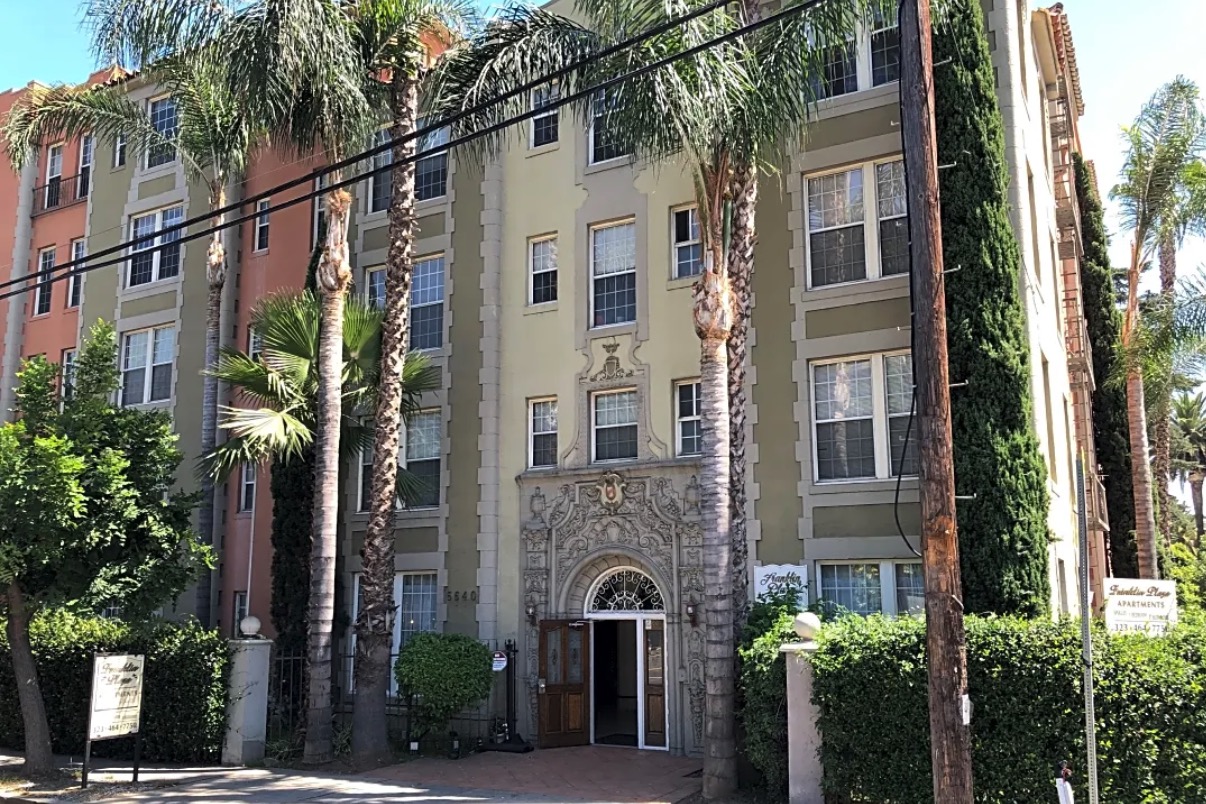Comments
HAZARDOUS RENTING IN LA - Tenants living in rent-stabilized apartments are willing to put up with a lot, but their homes shouldn't be making them sick. Erin Penner, a renter at 5640 Franklin in Hollywood, started feeling really ill in January 2023. At first, she thought it might be Covid, but it wasn't. She went to see a doctor, who told her it wasn't the flu that was making her sick. It was mold and lead.
Mold can be found in many people's homes, and lead paint is fairly common in structures built in the first half of the 20th century. It's important to realize, though, that both substances can cause serious health issues, especially lead. According to the CDC, mold can cause sore throats, coughing, wheezing, burning eyes and skin rashes. The effects can be more serious for those who suffer from asthma or immune deficiencies. Lead paint is an even bigger threat. The EPA says it can cause high blood pressure, headaches, dizziness, diminished motor skills and memory loss. Both mold and lead can be dealt with, but unfortunately, some landlords don't want to spend the money to do the job properly.

Erin wasn't the only tenant at 5640 Franklin who got sick. In speaking to people living in the building, she found that others have similar symptoms. One tenant whose doctor is treating her for symptoms related to mold says she’s had to pay almost $10,000 out of pocket for medical bills. Realizing that mold was present in many apartments, they hired an inspector to look further. The inspector found mold in the HVAC system, in the carpets, and inside the walls and ceilings.
The problem was obviously widespread and chronic, so the tenants contacted LA City agencies in the hope that they could help. City employees came to examine the building, and agreed there was a problem, but nothing was resolved. Erin was most frustrated by her experience with the LA County Health Department. She says a County Health worker came to the building and found widespread mold but told her there was nothing he could do because he didn’t observe water flowing down the walls.
According to Erin, the owners' approach to dealing with mold was to have workers paint over it. They also installed air scrubbers. But she says no real remediation was done. As for the lead, the owners claimed that they tested the water in the building and there was no lead present. But apparently, they didn't bother testing the paint. The tenants tried for months to get the owners to deal with the problems, and finally decided their only hope was to file a lawsuit, which they did.

According to the complaint, the company that holds title to the building is Millennium Equities, LLC. Among other things, the complaint accuses Millennium Equities of negligence, failure to provide habitable dwellings, and violations of LA's Rent Stabilization Ordinance. It also alleges that, "The substandard conditions at the Property are a consequence of Defendant’s pattern and practice of failing to implement basic preventative maintenance, timely repair work, inspection, and fumigation efforts." Hopefully the lawsuit will get some results for the tenants, but why should they have to go to court in the first place?
Unfortunately, as more and more apartment buildings are bought up by LLCs, it's become clear that the investors behind these entities generally prioritize profits over people. The tenants turn to LA City agencies in the hope that they'll get some relief, but often the City seems unable to require that owners provide habitable dwellings. In many cases, this new class of corporate owner will send workers to perform noisy, disruptive work on the building, without ever addressing the actual problems. In RSO buildings, often the owners' goal is to make things so bad that the tenants are eventually forced to leave, which will allow the owners to bring in a new tenant at a higher rent.
The tenants will struggle to put up with sub-standard conditions, no matter how bad it gets, because in many cases they can't afford the cost of a market rate unit. And since the City can’t seem to get results, their only hope is to find a lawyer who will take the case, but there are no guarantees they’ll win. It can take years for a lawsuit to make its way through the courts, and in the meantime the tenants are forced to live under the same conditions, risking their health just to keep a roof over their heads.
Earlier this year the LA City Council passed a package of measures that were supposed to protect tenants. In theory, things should be getting better. Tenants across Los Angeles are still fighting the same battles. Our elected officials talk a lot about protecting renters, but talk is cheap. They need action.
(Casey Maddren is President of United Neighborhoods for Los Angeles (UN4LA [www.un4la.com]), and a CityWatch contributor.)

















